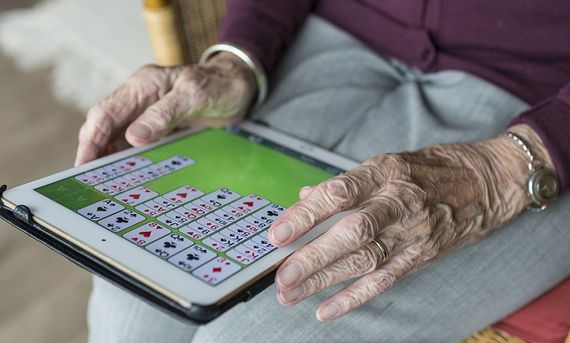In the last ten generations alone, human life expectancy has doubled. But this brilliant triumph of progress and medicine also has its dark side: living longer has made us more prone to suffer from brain deterioration that prevents us from enjoying old age in optimal conditions. In a society increasingly concerned with health, preventing our brains from aging worse than our body has become one of our major concerns.
And where there is concern, there is business, sometimes based on myths and unfounded claims. We review the state of current science on some common tips to keep our brains younger for longer.
Keep the mind active with new challenges
Typically, the first, and most obvious, piece of advice is to keep the brain active. It’s logical to assume that brain training can better preserve cognitive abilities as we age. However, presenting this as generic advice can be misleading since research has revealed that not all activity is equal. As an example, one study subjected a group of 221 people over 60 years of age to a specific activity for 15 hours a week over three months. After this period, the researchers assessed the effect on the participants’ memory.

The results showed that memory improved in the subjects whose task was to learn photography and digital editing or quilting, whereas the same did not happen in those dedicated to activities such as cooking, games, traveling, reading magazines or solving puzzles. According to study co-author Denise Park at the University of Texas, it is not enough simply to “do something” or look for entertainment, but rather to choose activities that take the person out of their comfort zone and pose a mental challenge. Although there are many claims about the benefits of any kind of simple mental task, such as doing puzzles or crosswords, reading or going to the movies, studies like Park’s suggest that only activities that provide true cognitive stimulation are beneficial.
Apps train us… to use apps
A particular case of the above is a growing trend: the increasing range of online apps and games boasting that they can help preserve cognitive abilities in the elderly. However, experts warn that the benefits should be assessed with caution.
One example is the controversy surrounding Lumosity, the app whose creators were fined two million dollars in 2016 by the US Federal Trade Commission on charges of misleading advertising. According to the Commission, the claims that the app was effective against memory loss, dementia and even Alzheimer’s were not supported by any scientific evidence. A subsequent study found no improvement in capabilities associated with the use of Lumosity in healthy young people.

This app is not the only case: in 2016, a review of published studies on various brain-training games concluded that their use improves outcomes in using the games themselves, but that there is no convincing evidence that these benefits extend to other tasks or to cognitive abilities in general. In other words, playing online trains you to play online, but nothing more.
Physical exercise, also advisable for the brain
It’s nothing new that a proper routine of physical exercise helps the body to age in better condition, and in recent years several studies have pointed to the idea that physical activity can also be beneficial to combat the signs of age in the brain. There is at least one plausible hypothesis: the brain, which accounts for only 2% of body weight, consumes 20% of the energy that our body uses in the form of glucose. Physical exercise improves cardiovascular health, so it can keep the brain’s supply of nutrients and oxygen in shape.

A recent study suggests that even light physical activity, such as walking or doing chores around the house, can improve brain function. The researchers studied the data from digital physical activity monitors of more than 2,300 middle-aged people, along with their brain scans. The results indicate that each hour of light physical activity per day is equivalent to delaying the loss of brain mass associated with age by one year, and that this association is more pronounced in individuals who do not practice sports on a regular basis. However, it is still a correlation without a demonstration of cause and effect, since it does not rule out the possibility that people with greater brain mass are more active.
Don’t forget sex
And if we talk about physical activity, why not sexual? A recent study recruited 73 women and men over the age of 50 and subjected them to cognitive tests designed to assess verbal and visuospatial abilities, such as listing animal names or drawing objects. The results show that those who have a weekly sexual activity score 2% better than those who only have sex once a month, and 4% better than those who practice abstinence.
Researchers cannot yet determine if the cause of these differences is purely social, i.e. if people with sexual activity are more social, or if there is a real biological effect associated with the hormones that are released during sex, so more extensive research will be needed.
Sleeping and eating well, the key to a healthy old age

The benefits of a good sleep regime are well known, but perhaps not so well known is that it can also be key to brain health in aging. Studies show that insomnia is associated with poorer cognition and poorer memory, while adequate nighttime sleep, and even the habit of napping, are associated with a lower risk of cognitive decline.
On the other hand, research also links healthy eating with improved cognitive function in old age. But, experts warn that in general the evidence is scarce when it comes to attributing these benefits to specific nutrients or compounds, so they recommend cautiously assessing the claims of commercial products and sticking to demonstrably healthy habits, such as the Mediterranean diet.
Comments on this publication